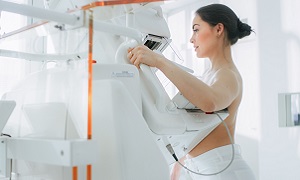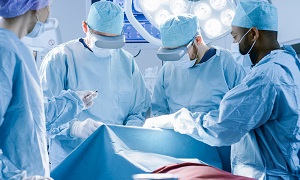Best Doctors in India for Breast Cyst Treatment
Best Hospitals in India for Breast Cyst Treatment
- City: Bengaluru, India
Hospital Highlights:
- Fortis Hospital Bannerghatta, Bengaluru was established in 2006.
- The hospital is a 276 bedded multi-specialty tertiary care facility.
- The hospital specializes in cutting-edge medical technology and dedicated patient care services.
- The hospital is equipped with state-of-the-art technologies like trans-radial angioplasty, trans-abdominal cardiac surgery, and computerized TKR navigation surgery.
- The hospital provides specialty medical services in cardiology, cardiac surgery, orthopedics, neurology, neuro-surgery, GI, and Minimal Access Surgery (MAS).
- City: Chennai, India
Hospital Highlights:
- Fortis Malar was established in 1992 and was formerly known as Malar Hospital.
- The hospital specializes in cutting-edge medical technology and dedicated patient care services.
- The hospital is multi-specialty, tertiary care facility with 180 beds.
- The hospital offers comprehensive medical care in specialties such as cardiology, cardio-thoracic surgery, neurology, neurosurgery, orthopedics, nephrology, gynecology, gastroenterology, urology, pediatrics, and diabetes.
- City: New Delhi, India
Hospital Highlights:
- Established in 1996, Pushpawati Singhania Research Institute is one of the top hospitals in the NCR region, as well as one of the top facilities in India for gastroenterology. The hospital is one of South Asia’s first institutes in medical and surgical treatment for diseases related to digestion.
- The hospital is equipped with state-of-the art facilities coupled with the latest equipment as well as renowned consultants from various parts of India as well as other parts of the world.
- City: New Delhi, India
Hospital Highlights:
- State-of-the-art technology and devoted healthcare professionals have been brought together under one roof at Venkateshwar Hospital to provide genuine medical care. The hospital’s professionals work together as a team to deliver the best possible treatment to their patients, using the most sophisticated equipment and information technology.
- Venkateshwar Hospital’s mission is to attain global excellence in healthcare by employing evidence-based, ethical clinical practices and cutting-edge technology by a team of highly skilled experts.
- City: New Delhi, India
Hospital Highlights:
- Sir Ganga Ram Hospital, New Delhi is known to provide the latest medical procedures with the latest technology in all of its units.
- The hospital has a team of reputed doctors, nurses, and healthcare professionals that ensure that patients receive quality care at affordable costs.
- Staffed with a team of highly qualified doctors, dedicated nurses, and paramedical and non-medical staff, the hospital aims to lead in healthcare delivery, medical education, training, and research.
- As per the vision of the founder, the hospital also provides free treatment to the economically weaker sections of society.
- Sir Ganga Ram Hospital also provides training to young doctors under the Diplomate in National Board(DNB) program. The DNB program at the hospital was started in 1984 and it is known for currently running the maximum number of DNB specialties in the country. It also has the distinction of having the first bone bank in India.
- City: Kerala, India
Hospital Highlights:
- Established in 2019, Apollo Adlux Hospital is the first Apollo Hospital in Kerala and the 73rd hospital owned by Apollo Group in India. With the state’s most advanced, comprehensive healthcare infrastructure and cutting-edge technologies, Apollo Adlux Hospital stands as an example of medical excellence in Kerala.
- With over 34 multi-specialty departments, the hospital believes in providing the best quality treatment to its patients at affordable rates, ensuring comfort at their difficult times.
- The 300-bed hospital is managed by a team of highly qualified and experienced experts who delivers exceptional hospitality to their patients and treats them with great compassion.
- With its affiliation with the Apollo Hospitals Group, the hospital aims in providing patients with top-notch healthcare services while also serving communities in Kerala.
- The hospital has good railway and road connections, and is conveniently close to Cochin International Airport.
- City: Gurugram, India
Hospital Highlights:
- Situated near DLF Cyber City, Gurugram, Narayana Superspecialty Hospital is one of the top medical facilities in the Delhi NCR region, catering to the needs of the people. Known for its commitment to quality medical care and patient service, the hospital is a state-of-the-art facility with planned and well-equipped sections, which includes a spacious OPD area as well as comfortable patient rooms.
- It is the closest super-specialty hospital from Indira Gandhi International Airport towards Gurugram, and also the nearest super specialty hospital from DLF Cyber City. It is also close to major residential areas in Gurugram.
- It is part of the renowned Narayana Health Group. Established in 2000, by Dr. Devi Shetty, a renowned cardiac surgeon, it has grown to be one fo India’s leading healthcare groups.
- City: Noida, India
Hospital Highlights:
- Fortis Hospital, Noida, stands as one of the oldest and most trusted healthcare institutions in the region, setting a benchmark for comprehensive medical care.
- As the second mega hub hospital in the Fortis Healthcare Group, Fortis Hospital, Noida, upholds a legacy of trust among more than 1.2 million patients. By integrating top-tier professionals with cutting-edge technology, the hospital delivers superior treatment across various medical disciplines.
- Specializing in advanced Neurosciences, Orthopedics, Kidney and Liver Transplant Programmes, Fortis Hospital, Noida has successfully performed over 1,500 transplants, solidifying its reputation as a leader in specialized medical interventions.
BREAST CYST
Breast cysts are round or oval structures that are filled with fluid, which form inside the breast. Around one-fourth of all breast masses turn out to be cysts. However, most breast cysts are benign and therefore they don’t increase your risk of breast cancer. Breast cysts generally don’t require any treatment unless a cyst is large or painful or uncomfortable.
Cysts may occur at any age, although they are more common for women who are in their 40s. If a cyst is large enough to be felt, then it is usually round and fairly movable under the skin. Cysts might also lead to pain, tenderness, or lumpiness in the breast. The symptoms can worsen and get better at different points of the menstrual cycle.
Symptoms
Breast cysts may develop in one or both the breasts. The following can be signs and symptoms of a breast cyst:
- A smooth and easily movable round or oval lump that might be having smooth edges
- Nipple discharge that may be clear, yellow, dark brown, or straw-colored
- A decrease in the size of the breast lump and resolution of other symptoms after a period
- Breast pain or tenderness in the area of the breast lump
- An increase in breast lump size and breast tenderness just before a period
It is important to note that having breast cysts don’t necessarily increase your risk of breast cancer. However, having cysts may make it difficult to find new breast lumps or any other changes that might require evaluation by your doctor. Your breasts may also feel lumpy and painful during menstruation, and therefore it is important to remember how your breasts feel throughout your menstrual cycle. This way, you will know if there is a change.
Normal breast tissue generally feels lumpy or nodular. However, if you feel a new breast lump that refuses to go away, or gets bigger, or persists after a few menstrual cycles, then it is important to see a doctor right away.
If you notice new skin changes on one or both of your breasts, then it is a good idea to see your doctor as well.
Causes
Each of the breasts contains lobes of glandular tissue, which are arranged like the petals of a daisy. These lobes are divided into smaller lobules that produce milk during the pregnancy and breast-feeding period. The supporting tissue giving the breast its shape is made up of fatty tissue as well as fibrous connective tissue.
Breast cysts develop due to the fluid accumulation inside the glands in the breasts.
Breast cysts are generally of two types, and are defined by their size:
Microcysts – Your doctor might see them during imaging tests, though they are too small to feel.
Macrocysts – They are large enough to be felt, and can grow to around 1-2 inches in diameter.
Diagnosis
For diagnosing your breast cancer, your doctor might need one or more of the following tests:
Breast Exam
Imaging tests
Imaging tests generally include the following:
Mammography
Breast ultrasound
This test helps your doctor in determining whether a breast lump is filled with fluid or solid. A solid-appearing mass most likely is a noncancerous lump.
Your doctor might also choose to perform a fine-needle aspiration, instead of imaging tests. During this procedure, your doctor will insert a thin needle into the breast lump, and attempt to withdraw fluid. It is often done using ultrasound to guide the placement of the needle accurately. If fluid comes out, and the breast lump goes away, then it helps your doctor to make a diagnosis immediately.
Treatment
No treatment is required for simple breast cysts, and for those that are fluid-filled and don’t cause any symptoms. Many cysts will also disappear without any treatment. If a cyst persists, feels firmer or if you notice skin changes on the skin over the cyst, then you need to discuss this with your doctor.
Fine-needle aspiration:
Fine-needle aspiration can also be used to treat your breast cyst if all the fluid can be removed from the cyst during the procedure. This results in your breast lump disappearing and your symptoms resolving.
For some breast cysts, you might need to have the fluid drained more than once.
Hormone use:
Your doctor might choose to use birth control pills in order to regulate your menstrual cycles. This may help in reducing the recurrence of breast cysts as well. But because of possible significant side effects, birth control pills or other hormone therapy is usually recommended only for those women who are suffering from severe symptoms. Discontinuing hormone therapy after menopause might also help to prevent breast cysts.












